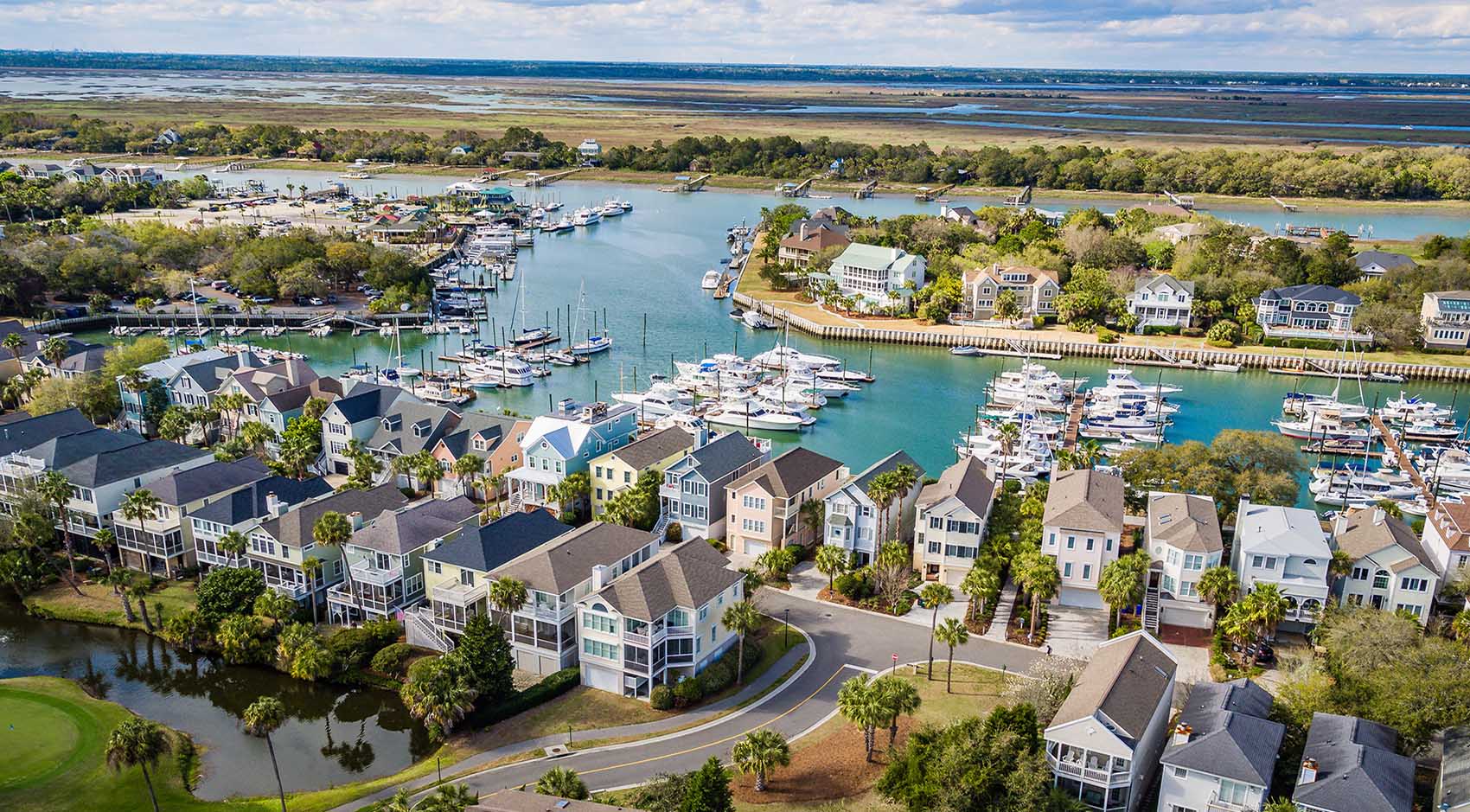 By Hogan Willis, Real Estate Sales Team Lead, Realtor, Luxury Simplified Real Estate
By Hogan Willis, Real Estate Sales Team Lead, Realtor, Luxury Simplified Real Estate
It’s fairly well known that Charleston SC not only serves up one lifestyle, but many – from urban, to village, historic, and beach. If waking up on the beach to the smell of the salty air, and sunrise over the horizon is what you desire, you can find just that. Or, if you would rather start your day on wide open acreage, surrounded by oak trees, lush greenery and deer walking through your front yard, well, you can find just that too. And, whichever community or development around Charleston you choose, you can decide if living in a community with a Home Owner’s Association (HOA) provides the type of lifestyle you’d enjoy most.
Large, master-planned communities with lots of amenities and manicured common areas are typically designed to assess HOA fees paid by the home owners of the development to maintain the common grounds and improve the community. If you’re shopping for a new suburban home around Charleston, it is likely you will encounter HOA fees. If you’re shopping for a condo or townhome, this fee may be referred to as a “regime fee ” and may cover more items than you expect, including common areas, shared indoor spaces, home owner’s insurance and flood Insurance.
Before choosing a HOA community, keep these 4 things in mind:
1. What Do HOA Fees Cost?
The amount of HOA fees assessed can vary depending on the community amenities and services offered. Regime fees are typically a monthly cost, whereas some HOA fees are billed one time annually. If the home you ultimately choose bills your dues monthly, this fee should be accounted for along with your monthly mortgage payment, taxes and homeowners insurance as part of your monthly “carry ” costs. It’s important to calculate this cost into your budget when searching for a home, as neglecting to pay these fees can result in a lein against your property.
2. What Do HOA Fees Cover?
It’s always important to be aware of how your HOA fees will be used so you can understand the value of the HOA. At the bare minimum, fees can cover amenity upkeep (neighborhood pool, tennis courts, playground, etc), landscaping, street lamps and sidewalks, but can vary in size and involvement depending on the agreed upon terms. “Reserve funds ” are collected within your HOA fees and these are typically used for larger community upgrades, fixes, or renovations. Usually you’ll be provided with a handbook or guide outlining how your fees will be used, and occasionally you can find these documents on your neighborhood website (if they have one). Annually, your HOA will distribute a balance sheet and budget, outlining how the funds have been spent, how much is in the reserve fund and projections for any upcoming budget items.
3. What Are The Rules & Restrictions?
An HOA is a legal entity, usually with a governing body, and it is legally required to provide to buyers at closing a detailed document often known as “Deed Restrictions ” or “Bylaws. ” Typically, the regulations surrounding the HOA will be outlined in this document and it will highlight things such as parking or guest restrictions, home aesthetic guidelines such as exterior paint color, fencing, additions/renovations, or day-to-day information such as trash and recycling days/times, and facility use hours (pools, tennis courts, clubhouse, gyms, etc.). Some HOAs restrict you from parking a commercial vehicle or a boat on your property, so be sure to ask your real estate agent for ALL of the details regarding the neighborhood if you find yourself looking in these kinds of developments.
4. Appearance
When viewing property in a HOA community, be sure to pay special attention to the quality of the common areas, amenities, houses and yards. Depending how well these key areas are maintained can affect the value of your home (and the offer you submit). In addition, find out who the contact for the HOA is and the current HOA president before you buy. Developing a good relationship with the HOA board will help along the way and being involved can really make you feel a part of the community.
The best part of living in a neighborhood with a HOA is the feeling of community involvement and “togetherness. ” Oftentimes, they organize social events to bring the neighbors together and create a sense of community. The level of involvement and planned activities can vary greatly from neighborhood to neighborhood and much of it depends on the amount of monthly or annual dues assessed. Neighborhoods like I’On in Mount Pleasant, or Daniel Island have lots of planned community activities, from summer concerts in the park to “golf cart parades ” on the 4th of July and a neighborhood block party at Halloween. It’s a great advantage when moving into a new area so you can get to know your neighbors. But all of that comes with a cost, and typically smaller communities don’t have similar budget expenditures.
Note: From I’On to Daniel Island, Carolina Park, Summer’s Corner or the new Nexton development in Summerville, you can find a community that offers the amenities you desire and suits your day-to-day needs. It takes an experienced agent to know the ins & outs of each neighborhood’s HOA, their restrictions and offerings, and can help you find your Charleston dream home. Start looking for your idea lifestyle in Charleston …
Interested in Learning More?
Our expert teams - from development, investment, real estate, and property management - have experienced it all and have the insight to help you along the way.
Find Out More